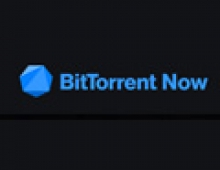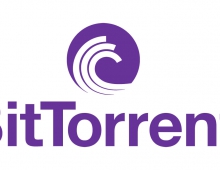
BitTorrent Has Lost Ground
File-sharers have moved away from the popular BitTorrent system following legal action and have moved to another network called eDonkey, showed a study by internet analysis firm CacheLogic.
It found that eDonkey has become the dominant peer-to-peer file-sharing network in countries such as South Korea, Italy, Germany and Spain. The study seems to suggest that the legal action to stamp out file-sharing is meeting with limited success.
This is a decentralised file-sharing network, where files are not stored on a central server but are exchanged directly between users based on the peer-to-peer principle.
The movie industry started targeting the operators of BitTorrent networks themselves last December. It has filed numerous lawsuits against BitTorrent server sites which linked to copyrighted material in order to undermine the ability to swap content.
"History is repeating itself. File-sharers moved from Kazaa to BitTorrent and now to eDonkey," said Andrew Parker Chief Technology Officer at CacheLogic. In countries such as the UK, Japan and China, eDonkey was as widely used as BitTorrent, found CacheLogic. In other countries like South Korea, it has become the most popular way of swapping content.
Some high-profile BitTorrent tracker sites have been closed down "It's proof that legal pressure from industry groups results in the mass migration of file sharers to an alternative network, whether old or new.
In the U.S. and Canada, there has been a surprising resurgence of the Gnutella file-sharing network. It was one of the first P2P services to be targeted by the record industry but has since faded into the background.
"People are migrating to Gnutella as the attention of the record and movie industry is elsewhere," said Mr Parker.
According to CacheLogic, 60% of the traffic on the internet by the end of 2004 was made up of peer-to-peer activity, though it does not have a breakdown of how much of this is copyrighted material.
This is a decentralised file-sharing network, where files are not stored on a central server but are exchanged directly between users based on the peer-to-peer principle.
The movie industry started targeting the operators of BitTorrent networks themselves last December. It has filed numerous lawsuits against BitTorrent server sites which linked to copyrighted material in order to undermine the ability to swap content.
"History is repeating itself. File-sharers moved from Kazaa to BitTorrent and now to eDonkey," said Andrew Parker Chief Technology Officer at CacheLogic. In countries such as the UK, Japan and China, eDonkey was as widely used as BitTorrent, found CacheLogic. In other countries like South Korea, it has become the most popular way of swapping content.
Some high-profile BitTorrent tracker sites have been closed down "It's proof that legal pressure from industry groups results in the mass migration of file sharers to an alternative network, whether old or new.
In the U.S. and Canada, there has been a surprising resurgence of the Gnutella file-sharing network. It was one of the first P2P services to be targeted by the record industry but has since faded into the background.
"People are migrating to Gnutella as the attention of the record and movie industry is elsewhere," said Mr Parker.
According to CacheLogic, 60% of the traffic on the internet by the end of 2004 was made up of peer-to-peer activity, though it does not have a breakdown of how much of this is copyrighted material.





















